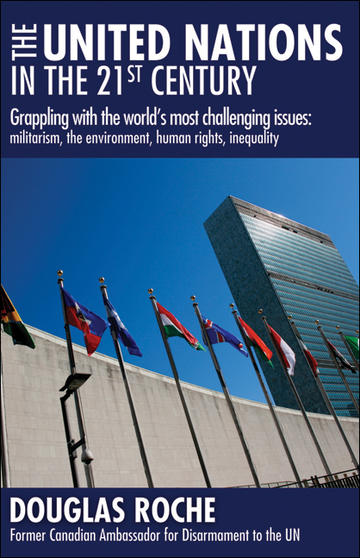After more than seven decades, the United Nations embodies humanity's hopes for peace, security, social justice, human rights, equality for women, and a voice for all. At the same time, it's where the conflicts and tensions amongst the governments and peoples of the world are often expressed.
Douglas Roche -- who has spent his lifetime in the cause of peace as a Canadian member of parliament, ambassador, and senator -- offers a brief account of the UN's role in the world today. He focuses on the most important issues: the use of military force in conflicts, the challenges of global warming and climate change, deep disparities between rich and poor, and the ongoing battle for equal human rights for all.
He describes the wide range of activities of the United Nations in these areas. He acknowledges the organization's failures and weaknesses, while pointing out its many successes -- some little known to the world's citizens.
Roche documents how the UN is working to address key issues that threaten humanity's future, using its unique position in the world to promote the ideals that gave it birth. Though its success is far from assured, he sees the UN as humanity's best hope for the future.
This book offers insight into an organization whose work is often decried by critics, often ignored by political leaders, and often invisible to the world's public.
DOUGLAS ROCHE was Canada's Ambassador for Disarmament to the UN from 1984 to 1989, serving as Chairman of the UN Disarmament Committee in 1988. He is an author, parliamentarian, and diplomat, who has specialized throughout his forty-year public career in peace and human security issues. A former Canadian senator, Roche is the author of twenty-one books, including Peacemakers, How We Stopped Loving the Bomb, and The Human Right to Peace. He is an Officer of the Order of Canada. He lives in Edmonton.



